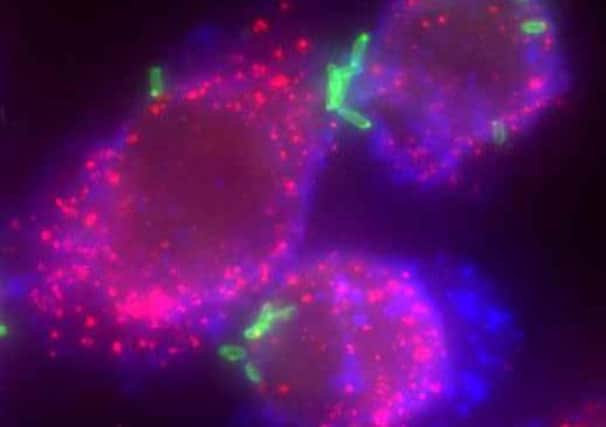Lothian legionella: Investigators ‘trace source’


A sample taken from a bag of compost used by one of the victims has provisionally tested positive for the potentially lethal legionella longbeachae.
Now a fifth case has been identified in Tayside, which is being linked to the Lothian outbreak which hospitalised four gardeners.
Advertisement
Hide AdAdvertisement
Hide AdDr Martin Donaghy, a public health consultant with Health Protection Scotland, said that while the likely positive result was not a “smoking gun”, it gave the 25-strong team examining the explosion in cases a valuable clue in identifying an original source.
He said: “We have one result which is coming through which indicates contamination. These are very early findings and we are looking to confirm the test further. It shows we are making progress. The worst thing we could do would be to read too much into early findings. I don’t want to give any impression it’s a eureka moment, but it does give us a clue and helps to prioritise the investigation.”
It is understood the positive sample was taken from a bag of compost found at the property of one of the people who have become ill.
Investigators believe the sudden Lothian outbreak, the first of its kind in the UK, indicates the bug came from one original source. Of the Lothian victims, one remains in intensive care, another in hospital and two have been discharged. They are aged between 62 and 84.
The bug is more commonly found in Australia and New Zealand and was almost unheard of in Britain until recently. Gardeners have been urged not to give up their hobby, but have been advised how to lessen the risks from the bacteria, which can be inhaled through contaminated water or dust.
Dr Donaghy added: “While the risk of becoming unwell from gardening activities, such as working with compost, remains very low, we’d recommend good hygiene in relation to gardening – wearing gloves, wearing a mask if dusty, particularly indoors, and washing hands immediately after use.
“We also advise that people should open any compost or potting mix bags carefully in a well-ventilated area and if possible using a safety blade. Keep the door open in greenhouses or sheds when potting-up plants or filling hanging baskets.”